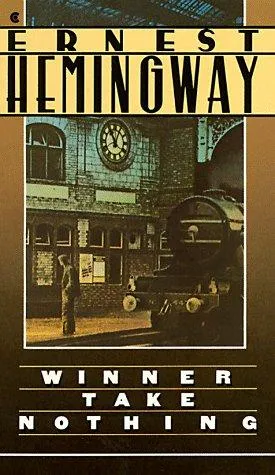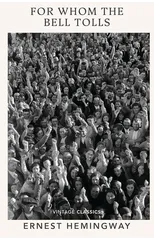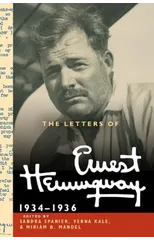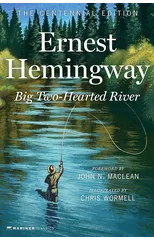'Unlike all other forms of lutte or combat, ' Hemingway wrote, 'the conditions [of gaming] are such that the winner shall take nothing; neither his ease, nor his pleasure, nor any nations of glory, nor, if he win far enough, shall there be any reward within himself.' Published in 1933, [these] ... fourteen short stories in 'Winner take nothing' contain 'just the hint of Hemingway's acceptance of the human situation, ' as his biographer, Carlos Baker, remarked. They also contain some of his best writing in the short-story genre since 'In our time.'
Ernest Hemingway
Ernest Hemingway (1899-1961) was an American novelist, short story writer, and journalist known for his distinctive writing style and portrayal of masculinity. His most notable works include "The Old Man and the Sea," "A Farewell to Arms," and "The Sun Also Rises." Hemingway's writing is characterized by its spare prose, realistic dialogue, and emphasis on themes of war, love, and loss. He is credited with revolutionizing the modern American novel and influencing generations of writers with his minimalist approach to storytelling. "The Old Man and the Sea," a novella about an aging fisherman's struggle with a marlin, remains one of Hemingway's most famous and enduring works, winning him the Pulitzer Prize for Fiction in 1953 and solidifying his reputation as a literary giant.






